What are the methods of energy saving in air compressor?
Air compressors play a pivotal role in numerous industrial sectors, powering essential equipment and enabling efficient operations. However, their immense power demands often result in significant energy consumption. As environmental concerns and rising energy costs continue to grow, it becomes crucial to explore methods of energy-saving in air compressors. In this article, we will delve into cutting-edge techniques and innovative approaches that can help businesses optimize their compressor usage while reducing overall energy consumption.
1. Implement Proper System Sizing:
One of the fundamental ways to achieve energy efficiency is to ensure the air compressor system is appropriately sized for the required applications. Oversized or undersized compressors lead to wasteful energy consumption and decreased productivity. Consulting with experts or conducting an energy audit can help determine the right size for your operations, ensuring optimal performance while avoiding unnecessary energy expenditure.
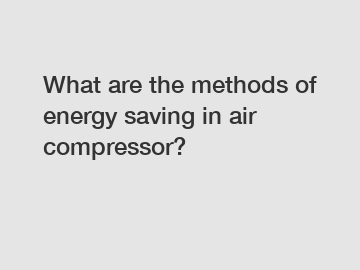
2. Utilize Variable Speed Drives (VSD):
Employing Variable Speed Drives in air compressors can be a game-changer in terms of energy savings. Traditional compressors typically operate at a fixed speed, continuously consuming full power even during periods of lower demand. VSD technology allows compressors to match their output with the actual air requirements, fine-tuning energy usage and avoiding excessive energy waste. By eliminating the need for frequent start-stop cycles, VSD significantly reduces wear and tear, extending the compressor's lifespan.
3. Opt for Efficient Compressor Design:
Investing in modern air compressor systems specifically designed for energy efficiency can yield substantial savings in the long run. Some advanced compressor models feature innovative technologies like oil-free air compressors, which eliminate the need for lubricating oil, reducing maintenance costs and energy consumption. Additionally, rotary screw compressors with superior heat transfer capabilities can reduce energy losses associated with heat dissipation.
4. Regular Maintenance and Leak Detection:
Air leaks in the compressed air system are a common source of energy wastage in many industries. Conducting regular maintenance checks and promptly addressing issues such as leaks, faulty valves, or clogged filters is crucial. Implementing an effective leak detection program not only conserves energy but also enhances the overall system performance, improving output quality and reducing costly downtime.
Additional reading:What should I know before buying a laser cutter?
Is Upgrading to a Refurbished Komatsu PC200-7 Hydraulic Pump Worth It?
Exploring Vital Mining Equipment: Your Comprehensive Guide
Which 4.5 Ton Diesel Forklift provides the best value for money?
How do you keep die cutting plates from warping?
Boost Productivity with Customized SS Hydraulic Cylinders - Catering to Every Industry's Unique Needs
Which automated adhesive dispensing system offers superior precision?
5. Optimize Pressure Settings:
Compressed air systems often operate at higher pressure levels than necessary. Adjusting the set pressure to the minimum required level reduces energy consumption by avoiding over-compression. Installing pressure regulators or control valves enables precise pressure control at different stages of the production process. This optimization ensures equipment runs efficiently without unnecessary power consumption.
6. Heat Recovery Systems:
Compressed air systems produce a significant amount of heat, which is typically wasted if not harnessed effectively. Implementing heat recovery systems allows businesses to capture this thermal energy and redirect it for heating applications, preheating water, or space heating. Utilizing heat exchangers can provide substantial energy savings, reducing reliance on conventional heating systems and cutting down operational costs.
7. Intelligent Control Systems:
Modern advancements in automation technology enable the integration of intelligent control systems within air compressor operations. By employing sensors, data analytics, and artificial intelligence, these systems optimize compressor efficiency in real-time. They continuously monitor key parameters such as pressure, temperature, and air quality, making automatic adjustments to optimize energy utilization while maximizing productivity.
Conclusion:
Energy-saving techniques in air compressors are crucial for driving sustainable industrial practices and reducing environmental impact. With proper system sizing, VSD technology, efficient compressor design, regular maintenance, optimization of pressure settings, heat recovery solutions, and intelligent control systems, businesses can achieve significant energy savings and bolster overall operational efficiency. Embracing these strategies not only benefits the environment but also contributes to the bottom line, ensuring cost-effectiveness and staying ahead in a competitive market.
If you are looking for more details, kindly visit Low Pressure Screw Air Compressor, Oil Free Blower, Oil Free Screw Air Blower.
Additional reading:HRSB service: How can personalized education revolutionize learning?
The Revolutionary Fiber Laser Cleaning Machine: Unleashing Efficiency
How is gummy candy packaged?
Demystifying Induction: Unveiling the Science behind How It Works
Which Hinged Broke Handler Contractor Will Transform Your Home Renovation Experience?
What key information should be entered into a roasting machine before roasting?
Which is the most reliable condensing boiler?
143
0
0
Related Articles
-
61
0
0
-
The Ultimate Guide to Copper Spinning Machines
Google hot topics around the keyword "The Ultimate Guide to Copper Spinning Machines":1.
111
0
0
-
Mastering Battery Health: Testing Internal Resistance
Google Hot Topics: Mastering Battery Health: Testing Internal Resistance?
52
0
0
-
55
0
0
-
55
0
0
-
50
0
0
-
Demystifying AGVs: The Ultimate Guide to Different Types of Automated Guided Vehicles
Demystifying AGVs: The Ultimate Guide to Different Types of Automated Guided Vehicles.
44
0
0
-
55
0
0


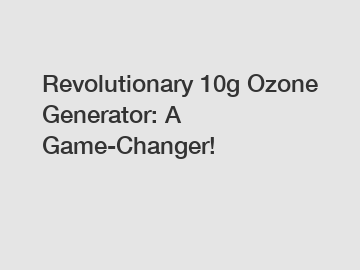
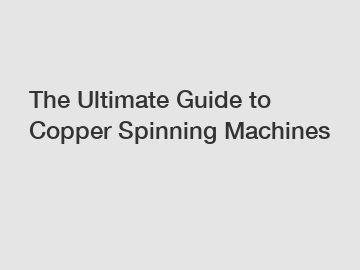


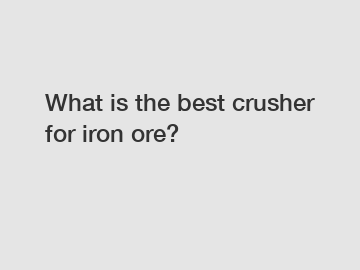

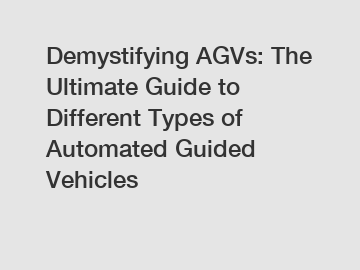
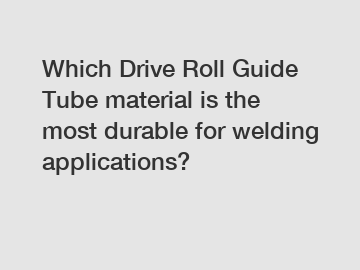
Comments
All Comments (0)